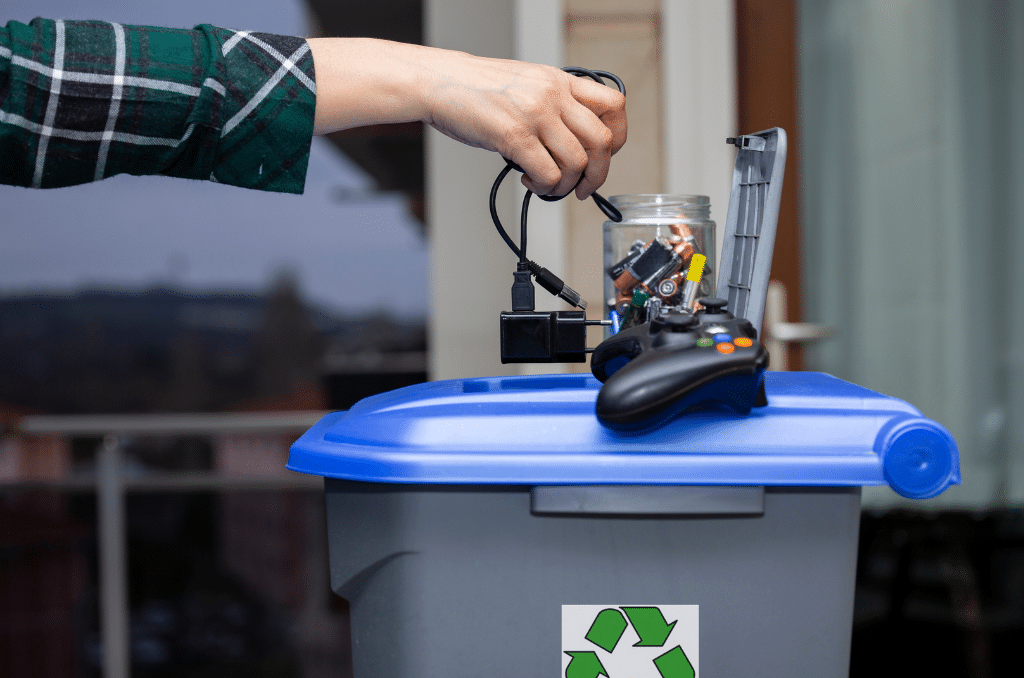In today’s rapidly advancing digital age, the proliferation of electronic devices has revolutionized our lives, enhancing communication, productivity, and convenience like never before. However, this technological progress comes at a significant cost – the staggering growth of electronic waste, commonly known as e-waste. E-waste comprises discarded electronic and electrical equipment, ranging from obsolete smartphones and computers to refrigerators and televisions. As our appetite for the latest gadgets continues to grow, so does the mounting concern over the environmental and human health hazards posed by improperly managed e-waste. This pressing issue calls for urgent and comprehensive action to address the challenges of e-waste management and pave the way towards a more sustainable future. This essay delves into the impact of e-waste, the reasons behind its rapid expansion, and the essential strategies to tackle this global challenge effectively. By understanding the gravity of the problem and working together towards responsible solutions, we can minimize the detrimental effects of e-waste on our planet and safeguard the well-being of current and future generations.

Key points to consider in the context of E-Waste Management:
-
Environmental Impact :
The improper disposal of e-waste has severe environmental consequences. When electronic devices are discarded in landfills or incinerated, toxic substances such as lead, mercury, cadmium, and brominated flame retardants can leach into the soil and groundwater, contaminating ecosystems. Air pollution results from incinerating e-waste, releasing harmful chemicals into the atmosphere. This contamination not only affects wildlife but also poses risks to human health through the food chain. Additionally, the extraction of raw materials for electronics, such as mining for metals and rare earth elements, contributes to habitat destruction, deforestation, and greenhouse gas emissions, exacerbating climate change.
-
Health Hazards :
E-waste recycling and disposal operations are often conducted in informal and unregulated settings, particularly in developing countries where many discarded electronics are shipped. Workers, often unaware of the potential risks, are exposed to hazardous substances without adequate protective measures. The inhalation of toxic fumes and the direct contact with harmful chemicals can lead to various health problems. Respiratory issues, skin disorders, and neurological complications are common among those working in e-waste recycling. Moreover, children involved in these hazardous processes suffer from long-term health impacts, with developmental disorders and chronic illnesses being prevalent.
-
Economic Loss :
E-waste contains valuable and recoverable materials, such as gold, silver, copper, and palladium. However, due to inefficient recycling practices, these resources are often lost or left unrecovered. This results in significant economic losses and further depletes natural resources, as more mining is required to meet the demand for new materials. A more sustainable approach to e-waste recycling, with efficient recovery of valuable components, can create job opportunities and stimulate the circular economy.
-
Global Scale :
E-waste is a global issue that requires international cooperation and accountability. Developed countries often export their e-waste to developing nations, where informal recycling operations have become a common sight. This exacerbates environmental and social problems in these regions, where the lack of proper infrastructure and safety measures endangers human health and the environment. An effective solution to this issue involves establishing global agreements that regulate the responsible handling of e-waste and discourage harmful export practices.
-
Extended Producer Responsibility (EPR) :
Extended Producer Responsibility (EPR) is a policy approach that encourages manufacturers to take responsibility for the entire lifecycle of their products. By implementing EPR regulations, manufacturers are incentivized to design products that are more durable, easier to repair, and recyclable. This approach shifts the burden of e-waste management from consumers and local governments to producers, who must establish recycling programs and proper disposal methods. EPR fosters sustainable product design and resource conservation, creating a more circular and environmentally friendly economy.
-
Public Awareness and Education :
Educating the public about the consequences of improper e-waste disposal is crucial. Many individuals are unaware of the environmental and health risks associated with their discarded electronics. Public awareness campaigns can inform people about the importance of recycling their electronic devices through authorized channels. Moreover, raising awareness about the potential for data theft and the need to erase personal information before disposal can protect individuals from privacy breaches. Public education plays a significant role in changing consumer behavior, encouraging responsible consumption, and fostering a culture of sustainability.
-
Formalizing Recycling Infrastructure :
Developing formal and regulated e-waste recycling facilities is essential to manage the increasing volume of electronic waste properly. Governments and organizations should invest in creating accessible and efficient recycling centers equipped with the necessary technology for safe processing. Collaborating with private companies that specialize in e-waste recycling can ensure the proper handling of hazardous materials while maximizing the recovery of valuable components. These formalized facilities not only reduce the environmental impact of e-waste but also provide job opportunities and contribute to the growth of the green economy.
Read More – Tips For Choosing The Right VPN For Your Needs
Bottom line:
The exponential growth of electronic waste poses a significant and urgent challenge that demands immediate attention from individuals, governments, and industries alike. To address this mounting concern, it is crucial to adopt a holistic approach to e-waste management that encompasses proper collection, recycling, and disposal practices. Initiatives focusing on extended producer responsibility, public awareness campaigns, and stringent regulatory frameworks are essential to encourage sustainable product design, responsible consumption, and efficient e-waste processing. By embracing these strategies and collectively working towards a circular economy, we can curtail the harmful environmental and health impacts of e-waste, ensuring a cleaner and more sustainable future for generations to come.









